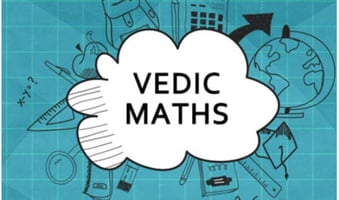Vedic maths is an old way of calculating faster and accurately using 16 formulas, also known as...
How Artificial Intelligence Affects STEM Education
What Is Artificial Intelligence (AI)?
Artificial Intelligence is the simulation of human intelligence by computer systems to perform human-like tasks. Specific applications of AI include expert systems, natural language processing, speech recognition, and machine vision.
In simpler terms, with AI, computers can perform tasks typically done by people, including processing language, problem-solving, and learning. Artificial intelligence is a tool, much like other types of new technologies.
AI has been around us for a very long time; some easy examples are Apple's Siri, Google Now, Amazon's Alexa, and Microsoft's Cortana are just a few of the many examples of AI in everyday life. These digital assistants help users perform various tasks, from checking their schedules and searching for something on the web to sending commands to another app.
The education system has started evolving in a new direction because of artificial intelligence. Just like any other computing system, AI is a tool that can be used effectively to aid with the education process. And especially in STEM education. With the help of AI, students can develop advanced conceptual knowledge and know their skills and weaknesses faster than anything else. Kapadec academy has been slowly and wisely making the use of machine learning / AI tools to inculcate the good use of latest technologies to help student learn more. Unlike other tools, Kapdec challenges the thinking process while eliminating the utterly mundane tasks.
What Is Stem Education?
STEM is an abbreviation for Science, Technology, Engineering, and Mathematics. As the name suggests, it includes all the subdisciplines within these fields, and STEM graduates are in high demand across various industries. The need for STEM graduates has tripped in the last decade.
How does AI Effects STEM Education?
Artificial intelligence's impact on education has been debated lately, mainly due to advanced solutions such as automated essay writing and problem-solving and finding the answer to math or science problems. Nonetheless, for every evolving technology, there will always be some good and some evil that comes with technology.
One of the benefits of using artificial intelligence is the automation of administrative work. For example, teachers can focus on greater engagement with students while paperwork processes are automated. From school admissions to the grading of exams, technology is a great help here by saving time and energy.
Many argue that AI improves the quality of everyday life by doing routine and even complicated tasks better than humans can, making life simpler, safer, and more efficient. To look at both sides of a coin, we find some pros and cons of the use of AI in education below:
Pros of Using Artificial Intelligence in Education
- Organized Information
It is rare for teachers and students to scour the library for any materials these days. Today, thanks to Google, we can access anything we want at the top of our fingers. Similarly, the Kapdec Digital library platform helps students by providing the relevant study materials required in their study plans. The entire information related to a topic is available in one place. The Kapdec digital library has an ever-evolving system of increasing educational content. No one should ever have to buy a book because everything is available at nearly a fraction of the cost.
- Personalized Learning
The most impressive use of AI in education is personalized learning. More and more schools are shifting from a comprehensive lesson plan to personalized student learning experiences. Specific AI platforms collect data based on students' capabilities and exclusively offer individual learning plans to students. Kapdec Academy Adaptive learning effectively uses the machine learning algorithm to help students drive better learning experiences.
- Intelligent Tutoring system
AI systems can also identify patterns, alerting teachers of these as well. Teachers can thus learn more about students’ habits and create a new study schedule that will work best with their requirements. For example, Kapdec Academy's intelligent performance evaluation system assesses students' skills. It helps them gain a better understanding than the other students who have taken exams in a similar time frame. It delivers good awareness so that students can gauge their true potential.
- Opportunities for Disabled students, for students with special needs.
- Improved Learning Methods, thereby helping with immersive learning
Cons of Artificial Intelligence
- Cost
As AI requires more digital devices, the power needed to run schools will increase exponentially. Schools will have to expand their budget to cover the expenses.
- Information in Wrong Hands
There is only one way other than to digitize information these days. But much like any other technology, the students' data could also be prone to hacking. If it falls into the wrong hands, schools always run the risk of misuse of personal information.
Artificial Intelligence is not a new concept; AI has been around us for many years. But AI has helped to polish its rough edges. For example, intelligent Moderation allows teachers and tutors to analyze information better. It will improve the education and grading systems and, in turn, help them be more efficient in the classrooms.
.png?width=100&height=100&name=Kapdec%20Logo%20(400px).png)


